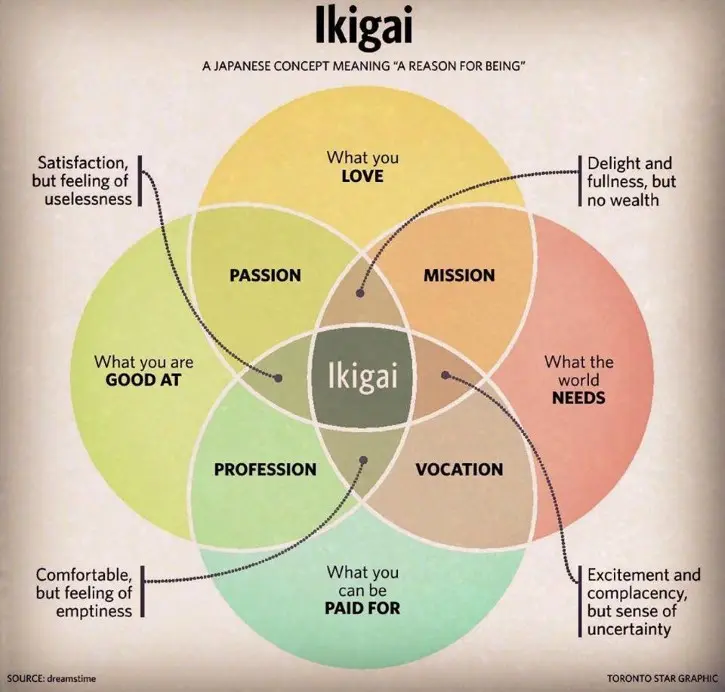Most spend their lives looking for happiness and a balance that makes them feel satisfied with their existence. Where is the key to having a full and fulfilling life? In Japanese culture, there is a concept called ikigai that appears as the point of convergence of this search for a life of meaning and satisfaction. What’s more, ikigai can be translated as “reason for being.”
SEE ALSO:
- Top 10 Most Common Surnames in Japan
- In this city in Japan there is a post office box under the sea
- Photo Series Shows the Harsh Reality of Japanese Workers

However, the idea of ikigai is not solely linked to financial status. In fact, it’s more about that motivation that puts a smile on your face when you wake up and keeps you in the mood to keep going. Finding our ikigai usually involves a long process that requires deep reflections on oneself to determine needs in various areas of our lives. In short, it’s about finding an answer to “What should I do with my life?”
It’s a question that tends to worry us throughout our lives. While some individuals feel connected to a certain passion or profession at a very young age, most spend their lives trying to find what makes them truly happy.
For Japanese culture, ikigai depends on four fundamental areas:
Passion and mission (what you love).
Passion and profession (what you’re good at).
Profession and vocation (what you can get paid for).
Mission and vocation (what the world around you needs).
How to attain ikigai.
True ikigai is attained only when these areas intertwine into a perfectly balanced center. For example, you can chase what you love and what the world needs, but this could lead you to run out of possessions. Conversely, if you dedicate yourself only to what you do well and get paid, you may feel empty and dissatisfied.
Pursuing your ikigai means facing challenges and committing, but it should also boost your well-being and encourage positive relationships. But where do you start? Essentially, asking yourself questions and providing answers, as if you were going to change careers.

Start with the questions that appear on the outline of the ikigai diagram and work your way up to something more specific. Never forget, ikigai doesn’t happen overnight, and it shouldn’t add undue stress to your life. It’s there to remind you that there’s more than one area in your life that you need to take into account if you want to feel happy.
For every financial, professional, or any other decision, always take into account the other areas of the ikigai diagram. And, not everything can be motivated by passion if it doesn’t make financial sense and doesn’t match your skills.
The Japanese philosophy of life.
You should also remember that the concept of ikigai doesn’t just apply to work. In fact, of the 2,000 Japanese interviewed in 2010, only 50% considered work to be their ikigai. This philosophy of life, which dates back to the Heian Period (between the years 794 to 1185), can also be applied to a hobby or the way time is invested during retirement. In addition, it may vary over time as circumstances evolve.
Ikigai does not translate into inexhaustible and permanent happiness. Instead, we can think of it as a guide through difficult times, leading us to where we ultimately want to be. Above all, it’s about listening to our own instincts.
Related:

Comments